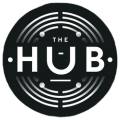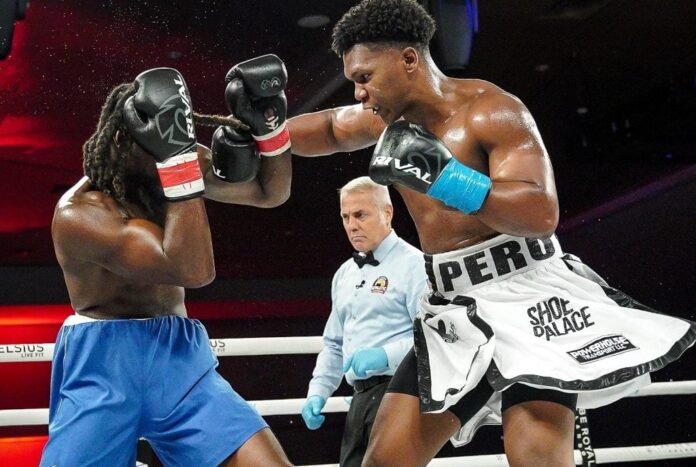Dainier Peró’s existential moment came sitting on a rock somewhere near a remote island off the Bahamas. He sat there wondering, “I can’t believe this is where I’m going to die.” This was the fifth time the Cuban heavyweight tried escaping Cuba and the fifth time he was captured. He was among 25 that the Cuban coast guard hauled in. Only this time, Peró and the group were banished to an isolated island instead of a prison.
This was no resort. There were no gentle lapping waves on soft white sand, no hissing water as the tide peeled back. His ceiling was a black starry sky to curl under in nothing but a t-shirt and shorts and everything he owned stuffed into a backpack.
On Saturday night, the 25-year-old Peró, the 2020 Cuban Olympic super heavyweight, will take on Willie Jake Jr. on the undercard of the Premier Boxing Champions’ main event on Amazon Prime between IBF junior middleweight titlist Bakhram Murtazaliev and Tim Tszyu, from the Orange County Convention Center, in Orlando, Florida.
Think Peró (8-0, 6 knockouts) has any major concerns? Think any heavyweight in the world can stress him like the 10 attempts it took him to escape Cuba? Think his eyes do not turn upon himself and see the vision of a skinny Dainier on a beach reduced to eating bugs and drinking out of a rusted oil barrel that had washed on to the shore?
Peró was caught nine times trying to escape. He got out on his 10th attempt.

Dainier Pero with manager and trainer Bob Santos (Photo courtesy of Team Pero)
“Oh, I think back,” said Peró through an interpreter, Diana Santos, the wife of Peró’s trainer and manager Bob Santos, The Ring’s 2022 Trainer of the Year. “It is motivation, because when you come from the bottom, you want to get to the top and are grateful for anything. Remembering what I have been through gives me that strength to move forward. I learned a lot of things. One: The poor don’t get sick. I had to push through.”
Pushing through meant getting out of Cuba.
On his fifth attempt in late 2021, the Cuban authorities thought that they would fix Peró and the group that he was with. He was among 25, which included women and small children. They were not returned to Cuba to be put behind bars. Instead, their punishment would come on an island for five days without food, water, or medical provisions. Without shelter, the blistering sun took its toll, but the group had palm trees to hide behind. What they did not have was enough food and water that they brought with them to last beyond two days. So, they resorted to drinking rainwater from an oil barrel, with the gooey remnants clinging to the bottom. Food grew so scarce they were forced to eat bugs. Peró, at 6-foot-5, 235 pounds, began to get desperate, even eying the large rats on the island.
For days, Peró was hoping a passing plane would see them, or count on the Cuban authorities to come back for them.
“You could taste the petroleum in the water,” Peró recalled. “I never got sick. I just remember being constantly thirsty. We ate bugs. We ate anything we could get our hands on. There was a point where we thought about capturing a big rat and eating that. We were picked up (by the Cuban authorities) before we had to do that. But it makes you think. The water was able to help. By the fourth day, we thought they were going to leave us there.”
He went to a desolate part of the island. He waded into the water toward a group of rocks close to the shore. He went up and sat on the rocks, looking out at the ocean, and questioning himself if he ever was going to get out.
If not for Peró, a revered Cuban Olympian, the Cuban authorities would have left the group on the island.
“I had more to still go on, but seeing three young children suffer bothered me,” said Peró, who despite the unbearable hardships he has endured carries the disposition of a jolly giant. “It could not be any worse than when I was 12 when my mother died of leukemia (at 36). They pulled me out of school to tell me my mother (Luisa Justiz) died. It wasn’t shocking news because I knew she had cancer. I did not see her until the funeral. But it was still a very difficult time for me, the worst time of my life, even worse than being on that island.”
Peró was raised by his paternal aunt, Daimi Peró. His father, Eunice Peró, still lives in Cuba. Peró says he speaks to his father a few times a week.
The fight against Jake (11-5-2, 3 KOs) will be an eight-round bout. The longest Peró ever went as a pro is four rounds. The two times he went the distance, he did not train for those fights.
“Peró is bigger than (heavyweight world champion Oleksandr) Usyk, he has faster hands than Usyk, but the biggest thing is how much he wants it and desires success when he gets paid,” Bob Santos said. “Right now, his work ethic is great. It will all come down to how he will deal with success. He has every tool in the shed to be the first Cuban heavyweight world champion. He is a bigger version of Usyk. He has the speed of a middleweight. He has no real wear-and-tear on him because Cuba did not allow him to fight for two years. With heavyweights, they do not mature until they are around 32 years old. He’s 25. He is super young for a heavyweight. He’s a baby for a heavyweight.
“Had he not been an Olympian, the Cuban government would have left his ass out there on that island to die. Boxing saved his life in more ways than one.”
A few days after his 22nd birthday, Peró finally made it out on his 10th attempt. If he didn’t make it, he vowed to himself, he would never try again. Cuban coast watchers were in the water. They spotted him in the boat, although for whatever reason, they never stopped him.
“It was like a miracle,” said Peró, who is working on his U.S. citizenship and lives in Las Vegas. “Every day I am so grateful to be in this country.”
Joseph Santoliquito is an award-winning sportswriter who has been working for Ring Magazine/RingTV.com since October 1997 and is the president of the Boxing Writers Association of America.
Follow @JSantoliquito

